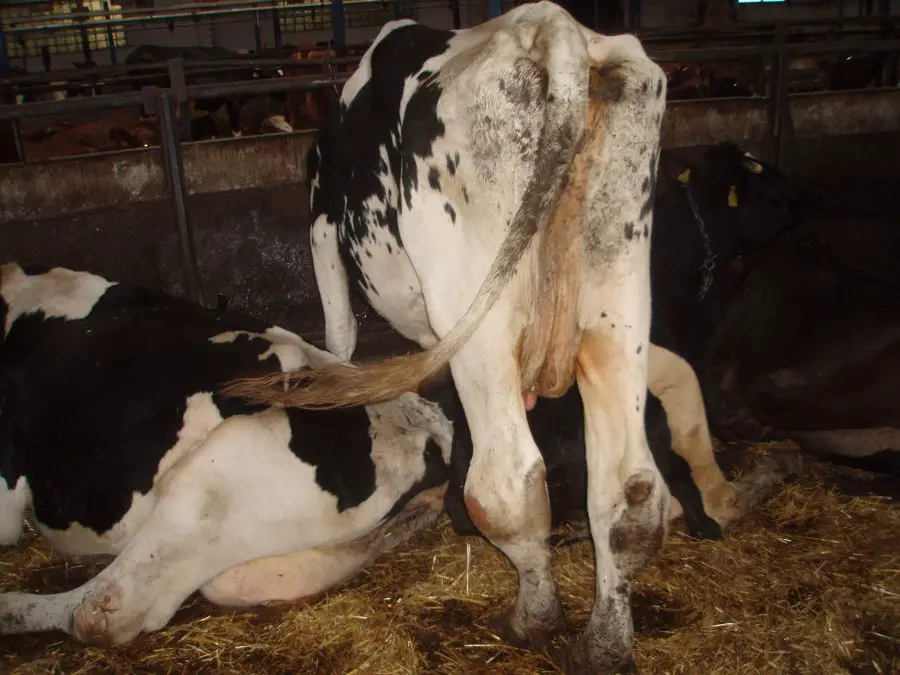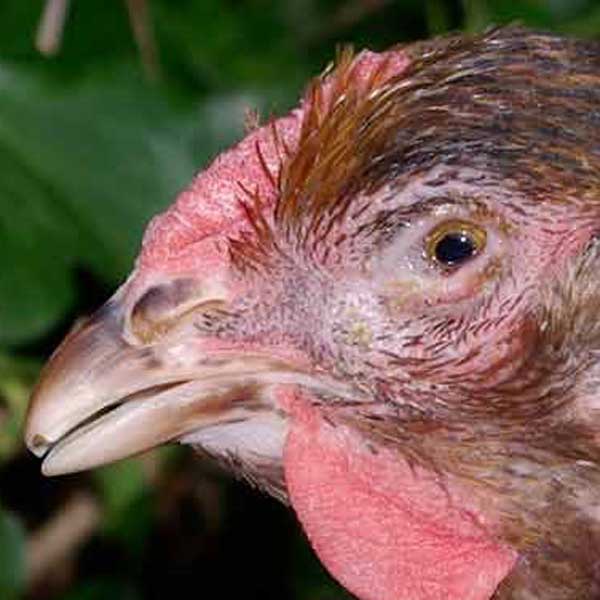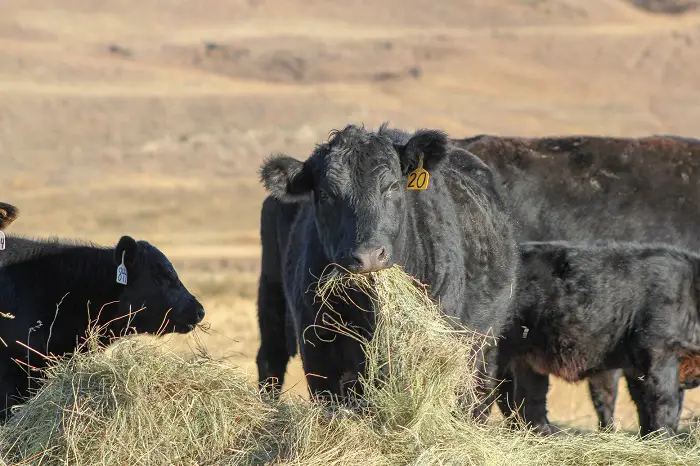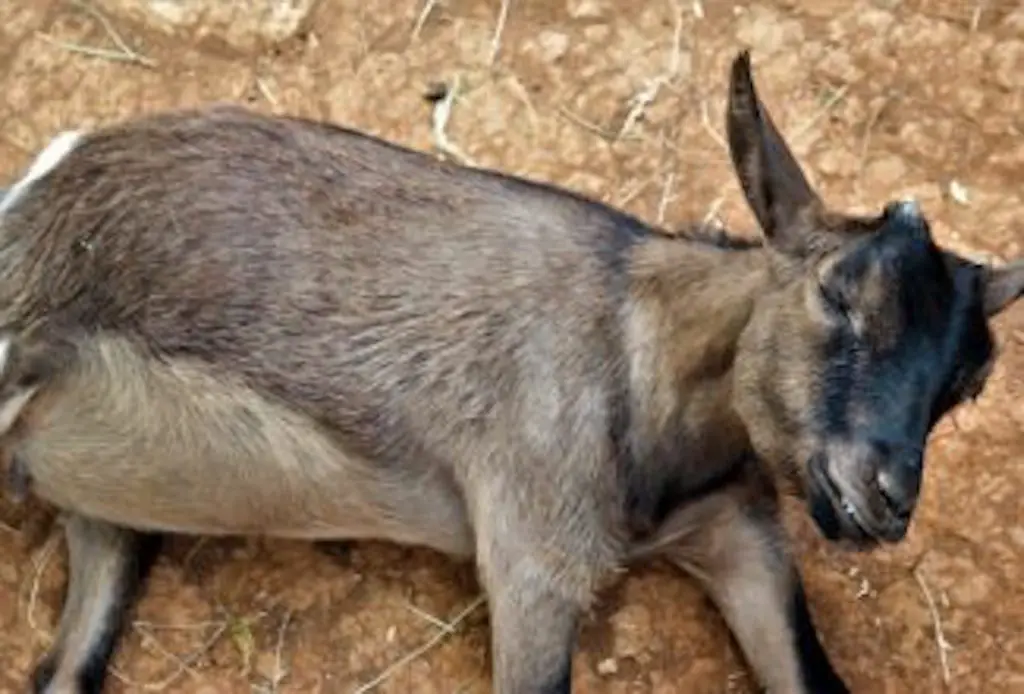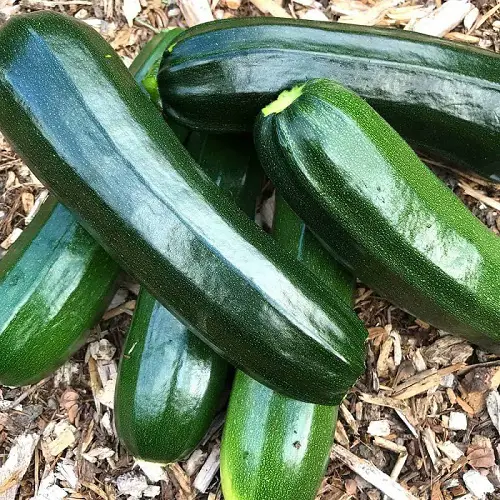Early diagnosis and treatment of swollen hocks in cattle helps them to live normal lives without having to bear the pain. If your cattle are developing swollen hocks then simply check out the article below in order to find out how you can treat them.
Contents
What Causes Swollen Hocks
Swollen hocks in cattle are caused by a number of factors. For starters, blisters, abscesses, hematoma, hernia, seroma and excess joint fluid are the main causes of swollen hocks in cattle. In order to identify the exact cause of swollen hocks in your cattle there are a few tests you need to carry out. For starters you need to clean the area surrounding the swollen hock, this means clipping the hair off and then sterilizing the area. The next step is to take a sterilized needle and pock the affected area. If pus comes out then that means it’s an abscess thats causing the hocks of your cattle to get swollen. If blood comes out then there is a chance that there is a hematoma that is causing swollen hocks in your cattle. A clear fluid will indicate that seroma is causing swollen hocks in cattle whilst a peritoneal fluid or gut contents indicate that a hernia is causing swollen hocks in your cattle. If nothing comes out there is a chance that the swollen hocks in your cattle are being caused by excess joint fluid.
Treatment Of Swollen Hocks In Cattle
If your cattle is suffering from swollen hocks caused by excess joint fluid then there isn’t much you can do to treat the cow. This is because this problem is usually hereditary and draining the excess joint fluid will only cause the problem to reoccur. This problem is common amongst cattle and is not painful for the cattle. Therefore, this problem is better off left alone. The treatments listed below are for other issues that might be causing swollen hocks in your cattle.
Antibiotics
NB: only use antibiotics prescribed by a veterinarian.
Antibiotics are the best treatment for swollen hocks in cattle. This is because they help to fight off the infection or bacteria especially if the cattle has an abscess, hematoma or seroma. Some antibiotics administered to cattle contain a dosage of pain killers and this usually helps to relieve pain on the cattle. Antibiotics that are usually recommended by vets for swollen hocks are tetracycline and penicillin. When administering antibiotics make sure you use the correct dosage prescribed by the vet.
Surgery
If the swollen hocks in your cattle are being caused by hernia that means surgical treatment is needed in order to solve the problem. The surgical treatment is performed by vets and it can be a bit expensive. When a surgical operation is done on cattle, pain killers need to be administered to it because the cattle will be in a lot of pain.
Phytotherapy
Another treatment for swollen hocks in cattle is phytotherapy, which is basically the use of plants and herbs in order to treat and prevent certain health conditions. The Arnica Montana plant and the comfrey plant are 2 renowned plants that can be used to treat swollen hocks in cattle. Arnica Montana plant contains antibacterial, anti-inflammatory and anti-fungal properties. When administered to cattle it helps to reduce the severity of swollen hocks. The comfrey plant also contains anti-inflammatory and anti-bacterial properties and should only be used on shallow wounds around the swollen hocks. This is because it tends to heal the top layer of skin first before the bottom layer and this can result in abscess formation when used on deeper wounds.
What Causes Swelling Of Joints In Cattle?
Swelling of joints in cattle is usually caused by excessive joint fluid in the cattle’s joints. This condition is usually harmless and is usually solved by draining off the excess joint fluid. However, once you do this, the problem is likely to reoccur. Therefore, it’s best that you just ignore the problem considering it doesn’t cause any pain to the cattle. Another cause of swelling joints in cattle are infections or hernia. In such cases you need to take your cattle to a reputable vet and have your cattle treated.
What To Give Calves With Swollen Joints
Calves that usually show signs of swollen joints would have mistakenly hit their legs on a hard surface. In most cases its best to give the calves a dosage of pain killers which should be prescribed to you by the vet. Furthermore, you can apply heat on the swollen joints of your calves. This will help to reduce the swelling. If the problem persists you need to take the calves to a vet and have them checked out.
What To Do If A Cow Is Limping?
If a cow is limping the first thing you need to do is to check the leg to see if there are any signs of swelling. If there are you can administer pain killers to your cow or get the swelling checked by a vet. There is a chance that your cow might have a serious injury, abscess or hernia. In most cases the vet will administer antibiotics that will help to treat bacteria or infections. If the problem is being caused by a hernia, the vet will have to perform a surgical operation in order to treat the leg.
Can A Calf Recover From Joint Ill?
Yes, a cow can definitely recover from joint illness. In order to do this make sure that you take the calf to a reputable vet where it can get treatment. It’s also important that you take good care of the calf and administer the medications when needed. A calf that experiences joint illness needs proper care.
Conclusion
Swollen hocks in cattle can be treated using any of the methods stated in the above article. It is worth noting that cattle that get swollen hocks should be taken to a vet where they can get proper treatment. This is because if the problem is left unattended it can cause lameness in cattle.
